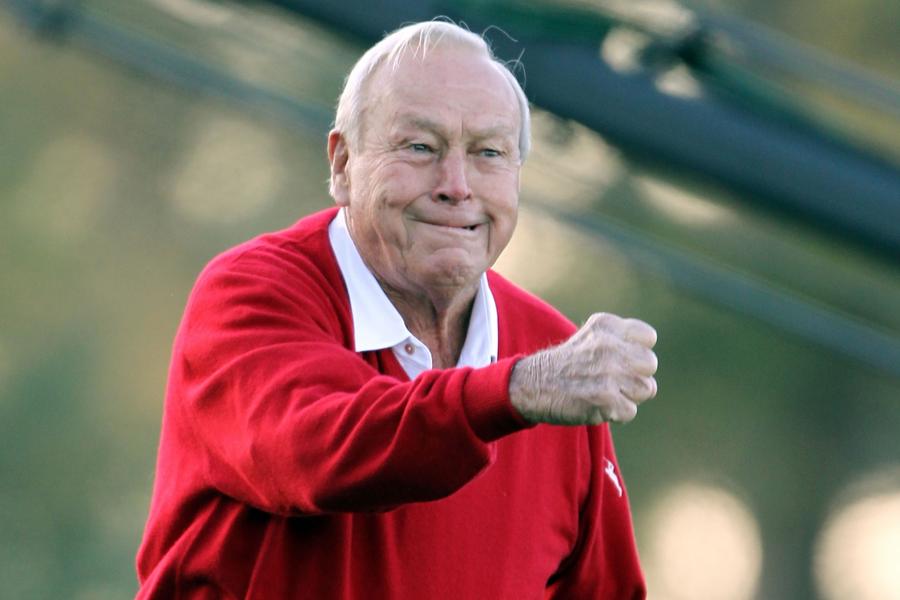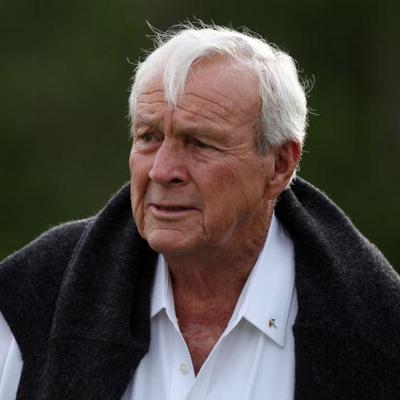Arnold Palmer at a Glance
Arnold Palmer: A Comprehensive Look at His Net Worth, Career, and Legacy
Arnold Palmer, a name synonymous with golf, charisma, and entrepreneurial spirit, left an indelible mark on the world. This article delves into the life and career of Arnold Palmer, exploring his significant net worth, his impact on the sport, his successful business ventures, and the legacy he left behind.
What Was Arnold Palmer’s Net Worth?
Arnold Palmer’s estimated net worth at the time of his passing was a staggering $700 million. However, his financial impact extended far beyond this figure. Throughout his illustrious career, Palmer amassed over $1.3 billion in earnings from endorsements and various business endeavors, adjusted for inflation. This financial success underscored his popularity, marketability, and his pivotal role in popularizing golf worldwide. Palmer was a master of the endorsement deal, making him one of the first athletes to capitalize on his image and popularity.
Early Life and Amateur Career
Born on September 10, 1929, in Latrobe, Pennsylvania, Arnold Daniel Palmer’s journey to golfing greatness began early. His father, Deacon Palmer, was the head professional and greenskeeper at Latrobe Country Club. This proximity to the game provided Palmer with unparalleled access and instruction, laying the foundation for his future success. Palmer attended Wake Forest College on a golf scholarship, but his studies were interrupted by the passing of his close friend, Bud Worsham. He later enlisted in the U.S. Coast Guard, serving from 1951 to 1954. Upon completing his service, Palmer returned to college and competitive golf, driven to reach the highest echelons of the sport.
The Rise of a Golfing Icon: Professional Career
After winning the 1954 U.S. Amateur Championship, Palmer made the pivotal decision to turn professional. He embarked on his professional career in 1955, winning the Canadian Open and earning his first professional victory. His first major championship came at the 1958 Masters Tournament, marking the beginning of a dominant run. Palmer’s career was further solidified when he signed with the pioneering sports agent Mark McCormack in 1960, a move that proved instrumental in shaping his brand and influence. McCormack recognized Palmer’s star power and charisma, attributes that would define his public persona.
Palmer’s appeal went beyond his golfing prowess; he was known for his good looks, relatability, willingness to take risks, and emotional displays. His performances at the 1960 British Open significantly boosted his global fanbase. Palmer’s decision to compete in the British Open and the Open Championship inspired more American golfers to participate in these prestigious events. His victories in the Open Championship in 1961 and 1962 cemented his legacy as one of the sport’s greats.
Palmer accumulated seven major championships throughout his career:
- Masters Tournament: 1958, 1960, 1962, 1964
- U.S. Open: 1960
- The Open Championship: 1961, 1962
The period from 1960 to 1963 was particularly fruitful, with 29 PGA Tour victories in four seasons. Between 1955 and 1971, he won at least one PGA Tour event annually. Moreover, he made 50 consecutive appearances at the Masters Tournament, with his final appearance in 2004. In 1967, Palmer broke the $1 million mark in career earnings on the PGA Tour, a testament to his dominance and marketability. He officially retired from tournament golf on October 13, 2006, but he remained an honorary starter for the Masters until his death.

Jamie Squire/Getty Images
Beyond the Green: Palmer’s Entrepreneurial Ventures
Palmer’s business acumen was as impressive as his golfing talent. He owned a diverse portfolio of businesses, many of which were golf-related. These included the Bay Hill Club and Lodge in Orlando, Florida, the location of the Arnold Palmer Invitational (originally the Bay Hill Invitational), and the Latrobe Country Club, which he purchased in 1971. His entrepreneurial spirit also led him to co-found The Golf Channel, broadening his influence in the sport.
In 1972, Palmer formed Palmer Course Design with Ed Seay, eventually renaming it the Arnold Palmer Design Company. As a course designer, he worked on over 300 golf courses in 37 states, 25 countries, and five continents. Palmer also ventured into the car business in 1974, acquiring a Cadillac dealership in Charlotte, North Carolina. He later expanded his automotive interests to include other dealerships, such as Arnold Palmer Motors in Latrobe, a Buick-Cadillac dealership that operated for 36 years.
All of Palmer’s endorsements and commercial partnerships were managed by Arnold Palmer Enterprises. One of his most popular products is the “Arnold Palmer” drink, a combination of iced tea and lemonade. This beverage, which Palmer frequently ordered, is sold under the Arnold Palmer trademark by the Arizona Beverage Company since 2002, featuring Palmer’s image and signature on the bottle. Other brands also sell this drink, but they cannot use the “Arnold Palmer” trademark.
The Arnold Palmer: A Refreshing Legacy
The “Arnold Palmer” drink is a perfect embodiment of Palmer’s accessible, everyman appeal. The combination of iced tea and lemonade, a drink he often requested at restaurants and enjoyed throughout his life, became a symbol of his down-to-earth personality. The drink’s popularity soared, solidifying Palmer’s brand recognition and extending his legacy beyond the golf course. The Arizona Beverage Company’s branded version is a testament to the ongoing popularity of this refreshing blend.
Personal Life and Philanthropic Legacy
Palmer’s personal life was marked by two marriages. He was married to Winnie Walzer for 45 years (1934-1999), and they had two daughters. After Winnie’s passing due to ovarian cancer, Palmer married Kathleen Gawthrop in 2005. Palmer’s grandson, Sam Saunders, also became a professional golfer. To overcome his fear of flying, Palmer obtained his pilot’s certificate and logged nearly 20,000 flight hours.
Beyond his professional achievements, Palmer was dedicated to philanthropy. He founded Arnie’s Army Charitable Foundation, supporting initiatives for children and youth. This foundation oversaw projects such as the Winnie Palmer Hospital for Women & Babies, the Howard Phillips Center for Children & Families, the Arnold Palmer Hospital for Children, and the Winnie Palmer Nature Reserve, reflecting Palmer’s commitment to improving lives.
Death
Arnold Palmer passed away on September 25, 2016, while awaiting heart surgery at the University of Pittsburgh Medical Center in Pittsburgh, Pennsylvania. His death marked the end of an era, as the golfing world mourned the loss of a legend.
Conclusion
Arnold Palmer’s influence on golf and the business world is undeniable. His net worth, built on both his golfing achievements and his keen business sense, is a testament to his enduring legacy. He was not only a golfing icon but also a successful entrepreneur and a philanthropist. Palmer’s impact extends beyond trophies and financial success; he is remembered for his charisma, his ability to connect with fans, and his commitment to giving back. His name continues to resonate with golfers and enthusiasts worldwide, solidifying his place as one of the most beloved figures in sports history.

